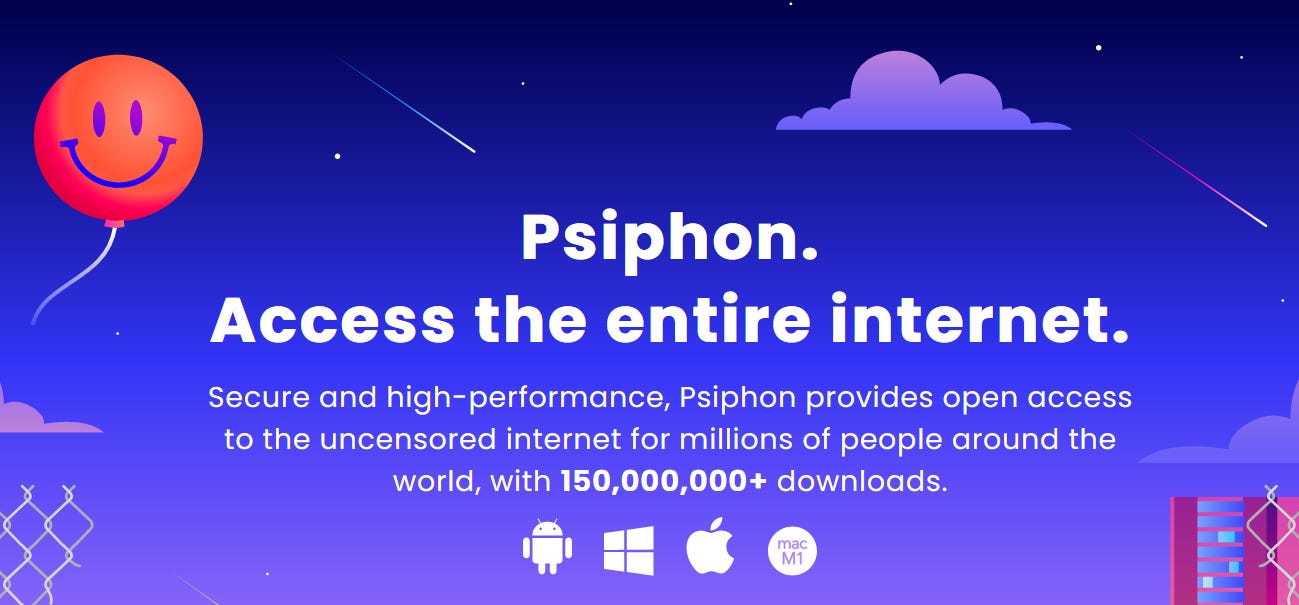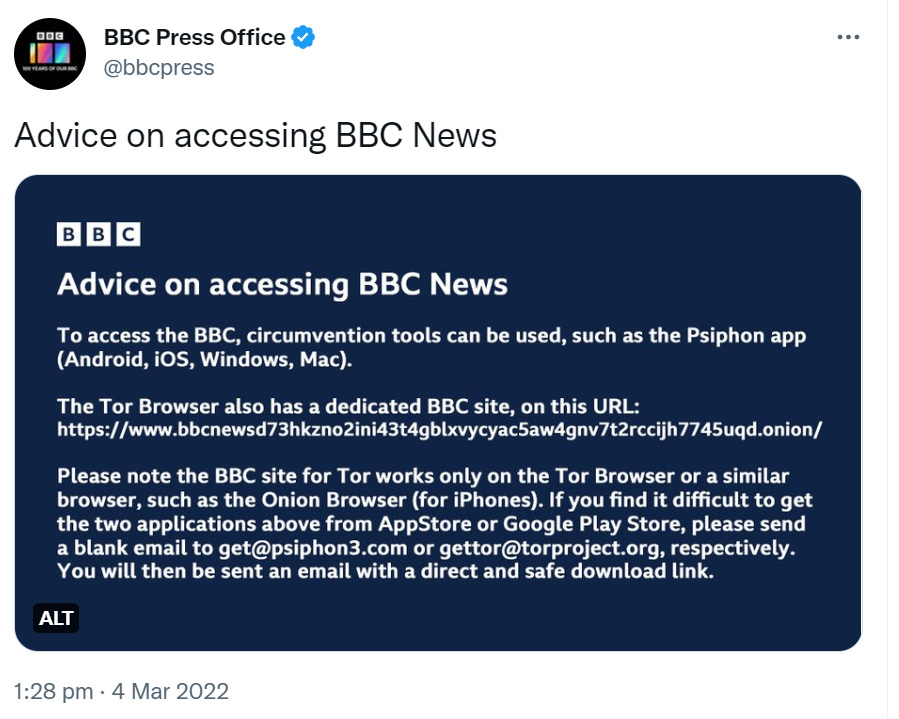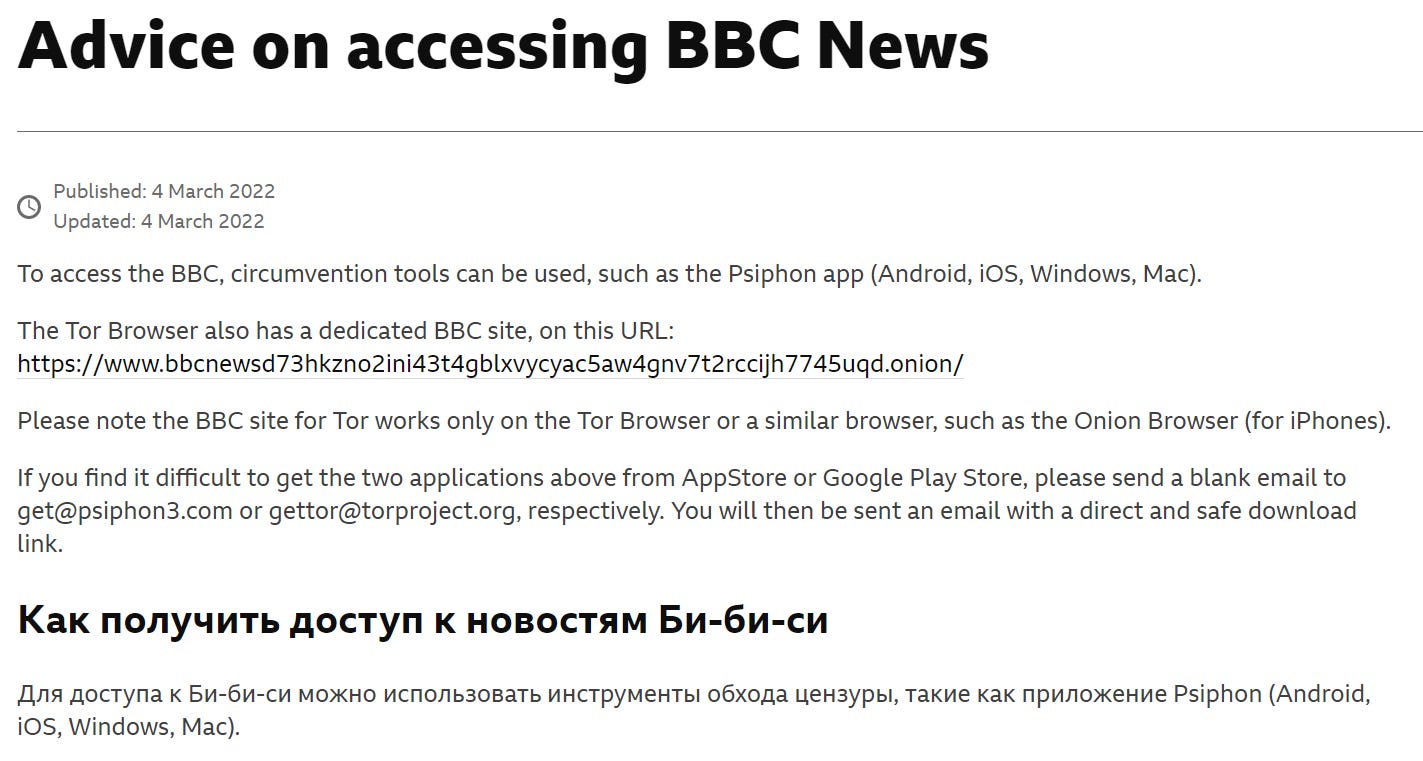Ever since foreign-backed riots broke out in Iran in mid-September, Western news outlets have frequently drawn attention to Psiphon. The free, open-source smartphone application and computer program allows users to circumvent national restrictions on websites and online resources, helping troublemakers organize and coordinate their activities, and send and receive messages to and from the outside world.
In the process, Psiphon has received untold amounts of highly-influential free advertising, and some Iranians - along with residents of West Asia more widely - will no doubt have been encouraged to download the software.
However, not a single mainstream source has acknowledged Psiphon’s spectral origins, let alone the malign aims it serves, and sinister purposes to which it can be put by its sponsors in the US intelligence community.
Psiphon was launched in 2009. Avowedly intended to support anti-government elements in countries the company considers “enemies of the internet”, the resource employs a combination of secure communication and obfuscation technologies, including VPNs, web proxies, and secure shell protocols (SSH), which allows users to effectively set up their own private servers that their own government cannot monitor.
Over Psiphon’s lifetime, it has been funded and distributed by a variety of spook-adjacent organizations. For example, it was for several years promoted by ASL19, founded by Iranian expat Ali Bangi in 2013 to capitalize on vast US funding flowing to “Internet Freedom” initiatives, in the Arab Spring’s wake.
A June 2011 New York Times probe into Washington’s “Internet Freedom” push concluded that all these endeavors serve to “deploy ‘shadow’ internet and mobile phone systems dissidents can use to communicate outside the reach of governments in countries like Iran, Syria and Libya.”
Bangi’s proximity to the US government was made abundantly clear when in 2016 he attended the White House’s annual celebration of Nowruz, invariably a coming-out party for elite state-sponsored “regime change” activists. Such high-level appearances, along with his status as a permanent fixture at tech conferences and digital rights events, cemented his place as a “rock star” figure within the Iranian diaspora.
Bangi was nonetheless forced to resign from ASL19 in 2018, after he ended up in court in Canada on charges of sexual assault and forcible imprisonment. A resultant profile in tech industry magazine The Verge alleged he had fostered a culture of widespread drug use, sexism, harassment, and bullying within the organization. On several occasions he was aggressive and even violent towards staff, with female employees a particular target of his ire.
With Bangi and ASL19 out of the picture, in 2019 Psiphon began receiving millions from the Open Technology Fund (OTF), created seven years earlier by Radio Free Asia (RFA), which in turn was founded by the CIA in 1948 following official authorization to engage in “black operations”. This included propaganda, economic warfare, sabotage, subversion, and “assistance to underground resistance movements.”
In 2007, the CIA’s official website ranked RFA and other “psychological warfare” initiatives such as Radio Free Europe and Voice of America among “the longest-running and most successful covert action campaigns” it ever mounted.
Today, RFA is an asset of the US Agency for Global Media (USAGM), which is funded by the US Congress to the tune of hundreds of millions of dollars every year. In August 2018, its CEO acknowledged “the organization’s “global priorities…reflect US national security interests.”
OTF was one of the several malign initiatives spun out of “Internet Freedom”. Individuals intimately involved in making this desire a reality are under no illusion as to the true raison d’etre they are serving. In February 2015, Jillian York, an OTF advisory board member, stated she “fundamentally” believed “Internet Freedom” was “at heart an agenda of regime change.”
OTF being the brainchild of a US intelligence-created “psychological warfare” platform illuminates a key purpose of Psiphon. Namely, ensuring citizens of countries in the crosshairs of ongoing US-led regime change efforts can continue to access Western state propaganda.
A November 2019 USAGM factsheet on “tools supported by OTF” gives top-billing to Psiphon.
“OTF provides USAGM networks with assistance to protect their content online and ensure it is resistant to censorship. For example, when USAGM news sites were abruptly blocked in Pakistan, OTF created mirror sites to ensure USAGM content remained available for key audiences,” the factsheet states. “OTF provides emergency support to independent media outlets and journalists facing digital attacks to get back online and mitigate future attacks.”
A May 2020 OTF report, on “highlights and challenges” of the year to date, likewise notes “veteran circumvention tool provider” Psiphon ensures USAGM-published content - including Voice of America Farsi - can reach audiences in countries in which it is banned.
In March, a dedicated section of the BBC website, published following the British state broadcaster’s prohibition by Moscow, offered an explanatory guide to how local residents can download the app via Android, Apple and Windows, in English, Russian, and Ukrainian. Psiphon was moreover promoted by the BBC Press Office’s official Twitter account at the same time.
Should users “find it difficult” to access Psiphon via established app stores, they were invited to send a blank message to a listed email address to receive “a direct and safe download link.”
In Iran, such utility is no doubt similarly invaluable given hostile media such as the BBC and RFA paint an utterly one-sided picture of the unfolding unrest, framing violent, incendiary actions by anti-government elements as peaceful, while wholly ignoring large-scale pro-government demonstrations.
Another core Psiphon strength from the perspective of Western power, is the resource funnels all user data to and through centralized servers, owned by the company itself.
While a user’s activities on the network might be shielded from the prying eyes of their own government, Psiphon can track what sites they are visiting, and their communications in real-time. This allows foreign actors to keep an unblinking eye trained on protesters and protest movements, and respond accordingly.
Psiphon’s meddling in Iran is now a long-established matter of public record. Back in 2013, the company published a blog hailing the “particularly big impact” it had made in the country, “coinciding with their presidential election.”
While acknowledging Tehran had “always been a big challenge for us,” Psiphon boasted that its software “stayed available” consistently during this time, despite repeated efforts to “severely throttle” its operation.
That none of this background has emerged in any of the countless fawning mainstream puff pieces on Psiphon is shocking, but unsurprising. After all, Western news outlets stand to materially benefit from a US-run protection racket projecting their agitprop to countless millions of people in secret.
And in becoming actively complicit in a US "regime change" operation, mainstream journalists are all less likely to acknowledge the reality of what’s happening in Tehran, why, and who and what stands to materially benefit from the government’s ouster.








The Internet has given incredible freedoms to humanity. The ability to share, discuss or discover anything and everything anywhere at anytime is powerful, and it's helped me personally. I wouldn't be the same person today if it was not for a free and anonymous internet.
It's quite saddening to see Internet freedom be co-opted for purposes like this. The intelligence apparatuses will lecture other countries on the sad state of their Internet access while they clench down on Internet freedoms back at home.
Congratulations !!
PS: FYI
Twitter Files - Wikipedia -- Kathleen McCook
https://en.wikipedia.org/wiki/Twitter_Files
Contents
1 Background
2 Content
2.1 Content moderation of New York Post story
2.2 Visibility filtering
2.3 Attack on the Capitol and suspension of Donald Trump
2.4 FBI communications with Twitter Trust and Safety Team
3 Reactions
3.1 Politicians
3.2 Legal scholars
3.3 Privacy and security
3.4 Former Twitter employees
3.5 Journalists
3.6 Commentators
4 Reference